Are you constantly battling mosquitoes when you’re outside? Natural mosquito-repelling plants offer a solution. These plants enhance your garden or patio’s beauty. Plus, they naturally deter those annoying insects. Discover 15 plants to create a more pleasant and mosquito-free outdoor environment.
Eucalyptus and Its Healing Properties

Eucalyptus trees offer both beauty and utility. Their tall, elegant trunks and vibrant green leaves create a peaceful setting. This image captures a tranquil landscape featuring eucalyptus trees, framed by gentle hills. Soft light streams through the foliage, highlighting their rich colors and creating an inviting scene.
Eucalyptus is renowned for its natural mosquito-repelling properties. Its leaves contain essential oils with compounds that deter these annoying insects. Planting eucalyptus near your home can significantly improve the comfort of your outdoor areas.
Eucalyptus doesn’t just repel mosquitoes; it also boasts healing qualities. Its oil is frequently used in aromatherapy. It can ease respiratory problems, making it a favored natural remedy. Use it to keep bugs away or for its calming effects. Eucalyptus is a valuable addition to any garden.
Marigolds and Their Bright Colors
Marigolds bring a burst of color to gardens with their striking orange and yellow shades. These cheerful flowers also offer a practical benefit: mosquito control. Their strong scent naturally repels these annoying insects, acting as an effective deterrent.
Adding marigolds to your garden or patio is simple and fulfilling. Plant them directly in your flower beds or use pots for your patio. Their vibrant flowers bloom throughout the entire season. This provides a burst of color wherever you decide to put them. Furthermore, they draw in helpful insects, supporting a thriving and healthy garden.
In 2025, planting marigolds alongside vegetables or herbs remains a smart gardening strategy. This pairing improves garden aesthetics and promotes healthier plant development. Furthermore, marigolds naturally repel mosquitoes, allowing you to enjoy your garden comfortably.
Catnip’s Unexpected Benefits
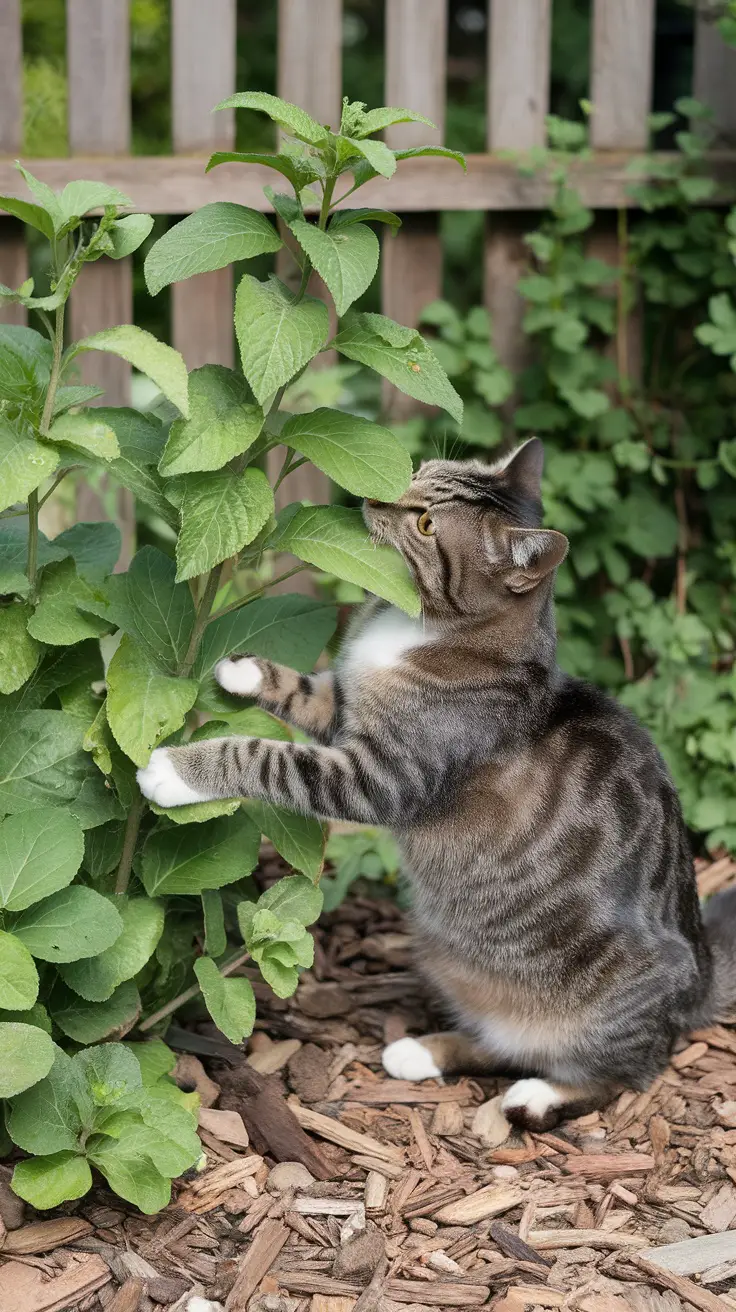
Catnip isn’t just a fun treat for cats! It’s also a surprisingly effective mosquito repellent. Scientifically known as Nepeta cataria, this plant contains nepetalactone. This compound helps keep mosquitoes at bay.
Observe a cat captivated by a vibrant catnip plant. This scene perfectly illustrates the allure of catnip for many feline companions. As your cat revels in this herb’s effects, you can simultaneously appreciate its natural ability to deter mosquitoes. This offers a dual benefit for both you and your pet.
In 2025, catnip remains a fantastic mosquito repellent for your garden. It’s simple to cultivate and adapts well to various conditions. Furthermore, a catnip area provides added enjoyment for your cats!
Consider adding catnip to your garden or balcony! It will delight your cat and naturally repel mosquitoes, making your outdoor space more enjoyable for you.
Lavender’s Calming Aroma
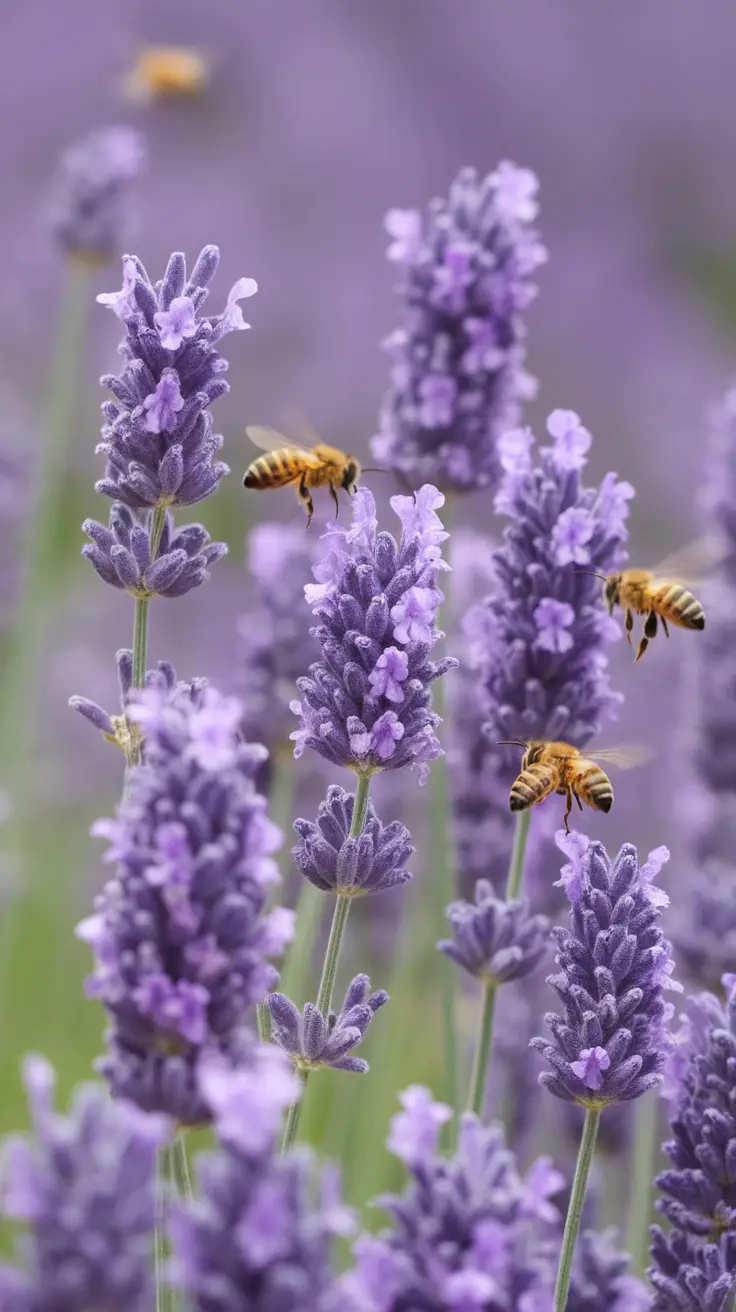
Lavender is more than just a beautiful flower. Its calming fragrance is widely appreciated. The purple blossoms, often attracting bees, create a peaceful environment. These flowers are famous for their aromatic oils. These oils are frequently used in aromatherapy to reduce stress and encourage relaxation.
Beyond its delightful fragrance, lavender is known to deter mosquitoes. Strategically placing lavender plants around your garden or patio offers both beauty and a natural mosquito repellent. The potent scent, soothing to us, is generally disliked by mosquitoes.
Want to add lavender to your garden? It flourishes in sunny locations with excellent soil drainage. Its hardiness makes it ideal for experienced and beginner gardeners alike. Furthermore, it draws in helpful insects such as bees, fostering a thriving backyard ecosystem.
Rosemary’s Versatile Uses
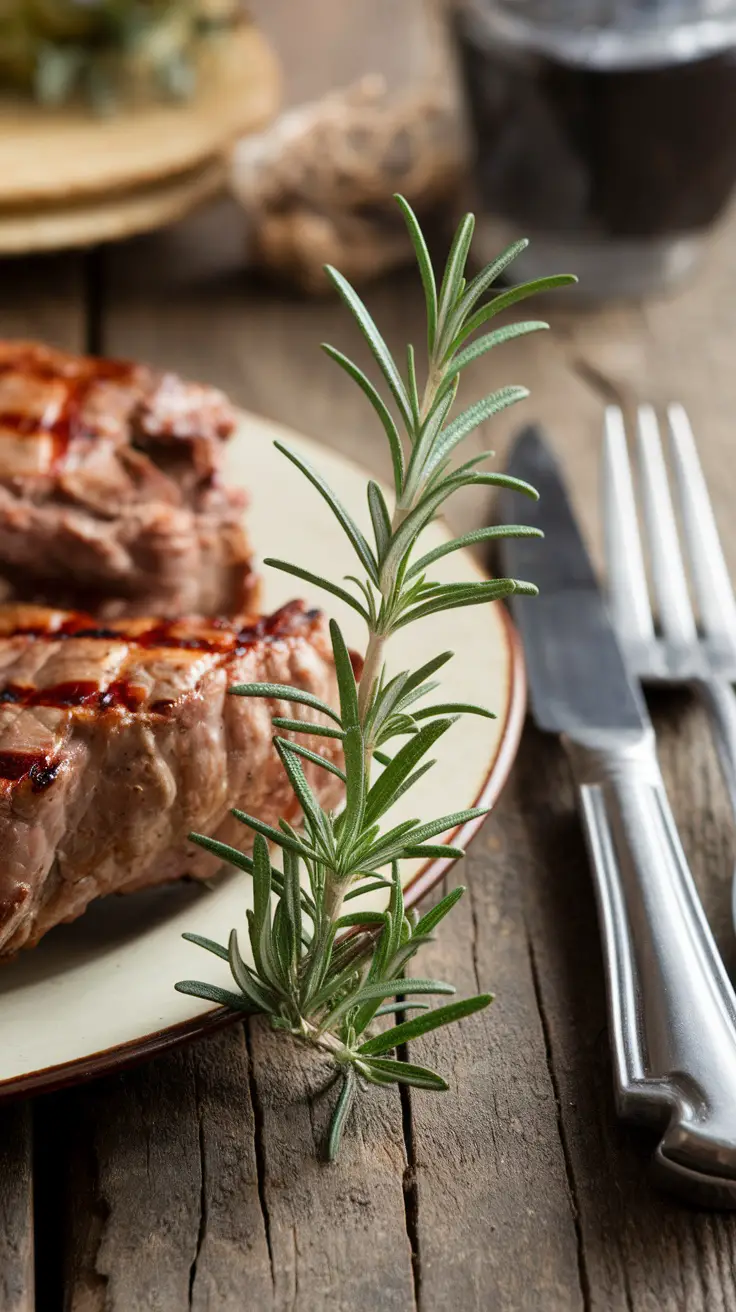
Rosemary, a visually appealing herb, offers a wide array of applications extending beyond culinary uses. The image showcases a fresh rosemary sprig beside grilled meat, illustrating its common role as a flavorful food seasoning. This pairing emphasizes its culinary popularity.
Rosemary enhances meals with its robust, fragrant taste. It complements lamb, chicken, and beef exceptionally well. Furthermore, it transforms vegetable dishes, soups, and marinades, adding a delightful twist.
Beyond its use in cooking, rosemary effectively deters mosquitoes. Planting it near your garden or patio provides a natural defense against these annoying pests. Mosquitoes dislike its potent aroma, making it a valuable addition to any outdoor area in 2025.
Rosemary shines in DIY herbal treatments. Craft infused oils or teas to harness its wellness properties. Many believe this herb boosts memory and focus, perfect for your workspace.
Rosemary is an excellent choice for your home, offering both culinary and pest-repelling benefits. Whether you’re grilling or aiming for a mosquito-free patio, this compact plant delivers significant advantages!
Citronella Grass Benefits
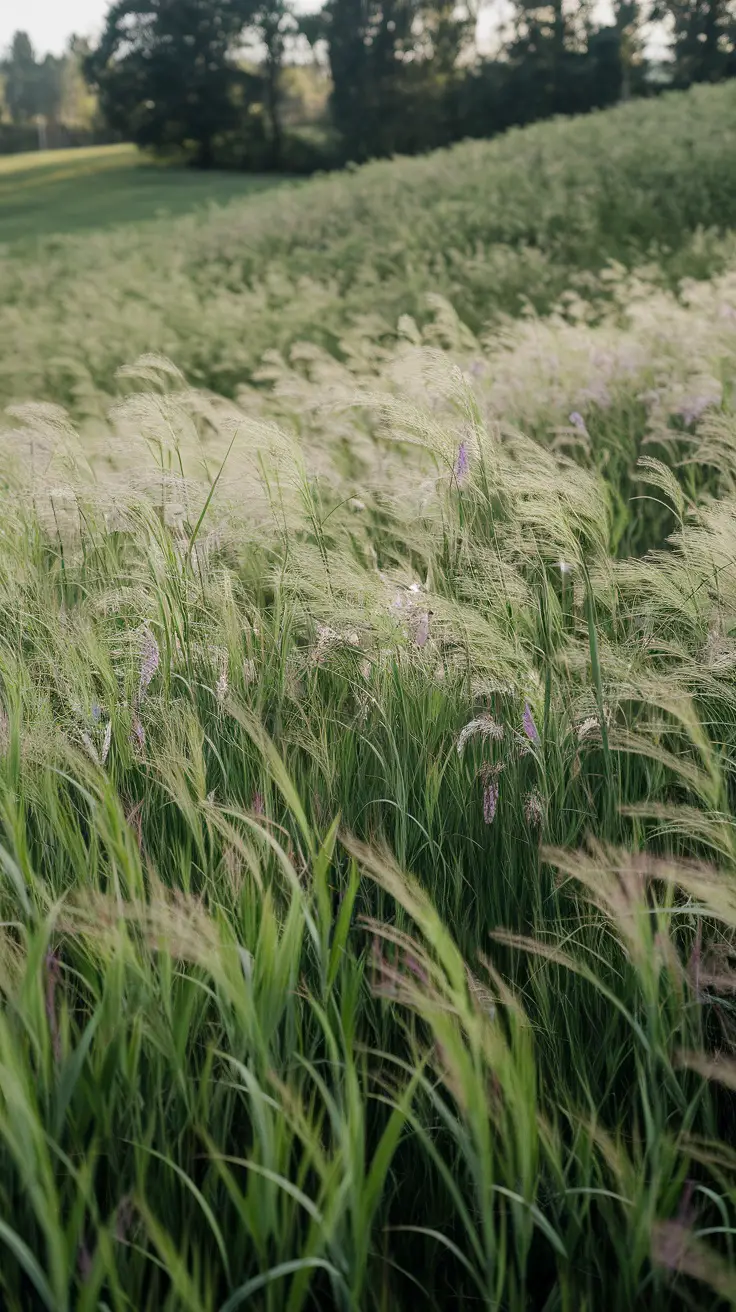
Citronella grass remains a top pick for mosquito control in 2025. This plant boasts a recognizable lemon fragrance, offering more than just a nice smell. It’s a natural insect repellent! Crushing the leaves releases potent oils. These oils effectively deter mosquitoes and other bothersome insects.
Citronella grass is a potent mosquito repellent and simple to cultivate. Plant it directly in your garden or use pots on your patio. It flourishes in sunny locations and needs little care. Water regularly, and enjoy a mosquito-free garden.
Beyond its ability to ward off insects, citronella grass offers more advantages. Its concentrated oils frequently appear in DIY candles, mists, and aroma diffusers, creating a pleasant and natural outdoor atmosphere. Furthermore, this plant introduces a charming green element to any setting.
Enhance your garden with citronella grass! This beautiful plant also helps create a more enjoyable outdoor space. Tired of mosquito bites? Adding this beneficial grass to your garden is a great solution!
Peppermint for Refreshing Scents
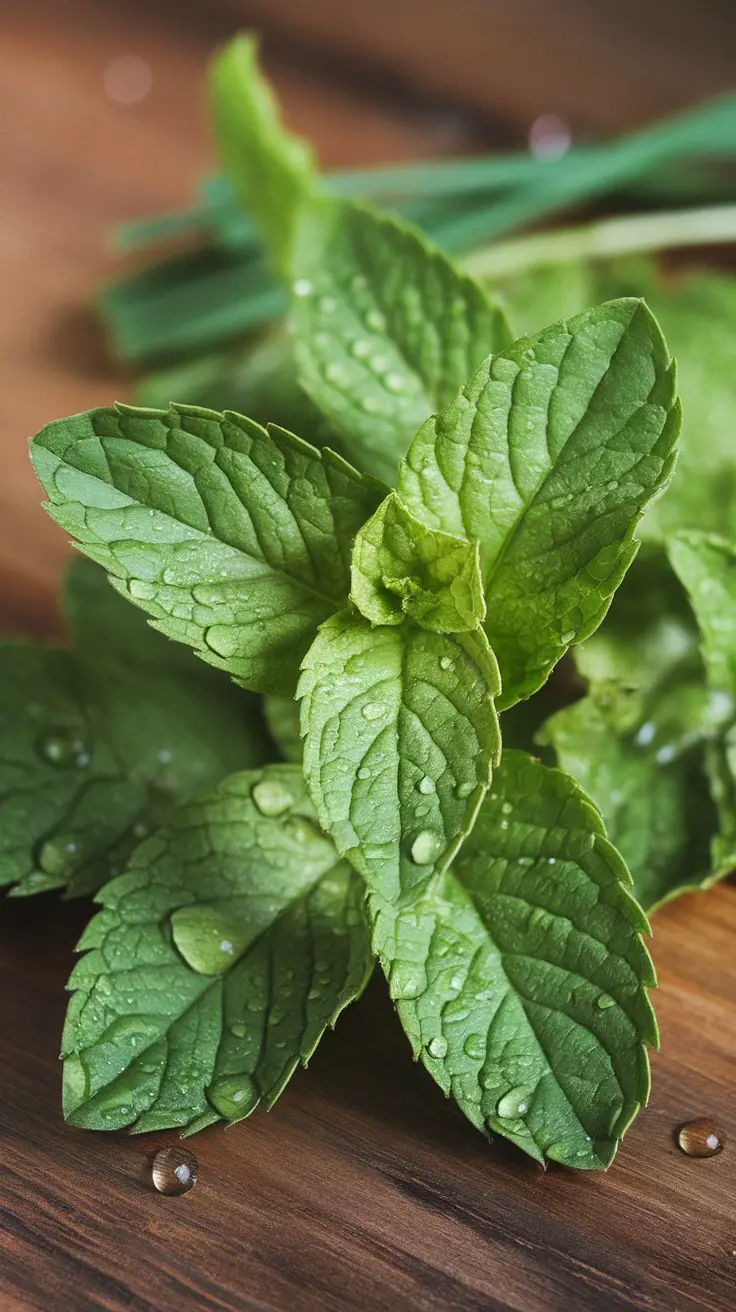
Peppermint isn’t just a flavorful herb; it’s a potent, natural mosquito deterrent. Its crisp, invigorating scent effectively repels these annoying insects. The refreshing aroma released when you brush against peppermint leaves is well-known. This pleasant fragrance can create a revitalizing ambiance in your garden or living space, offering a natural way to keep mosquitoes away in 2025.
Cultivating peppermint is straightforward, a favorite for gardeners everywhere. A simple pot indoors or a small garden area offers a convenient source. Enjoy its leaves in teas or recipes, providing culinary delight and natural mosquito repellent.
For successful peppermint planting, abundant sunlight and regular watering are key. Richly colored leaves indicate higher mosquito-repelling potency. Crushed leaves can be applied directly to the skin as a natural insect deterrent. This offers a fragrant and effective method for bug prevention.
Basil’s Culinary and Protective Qualities
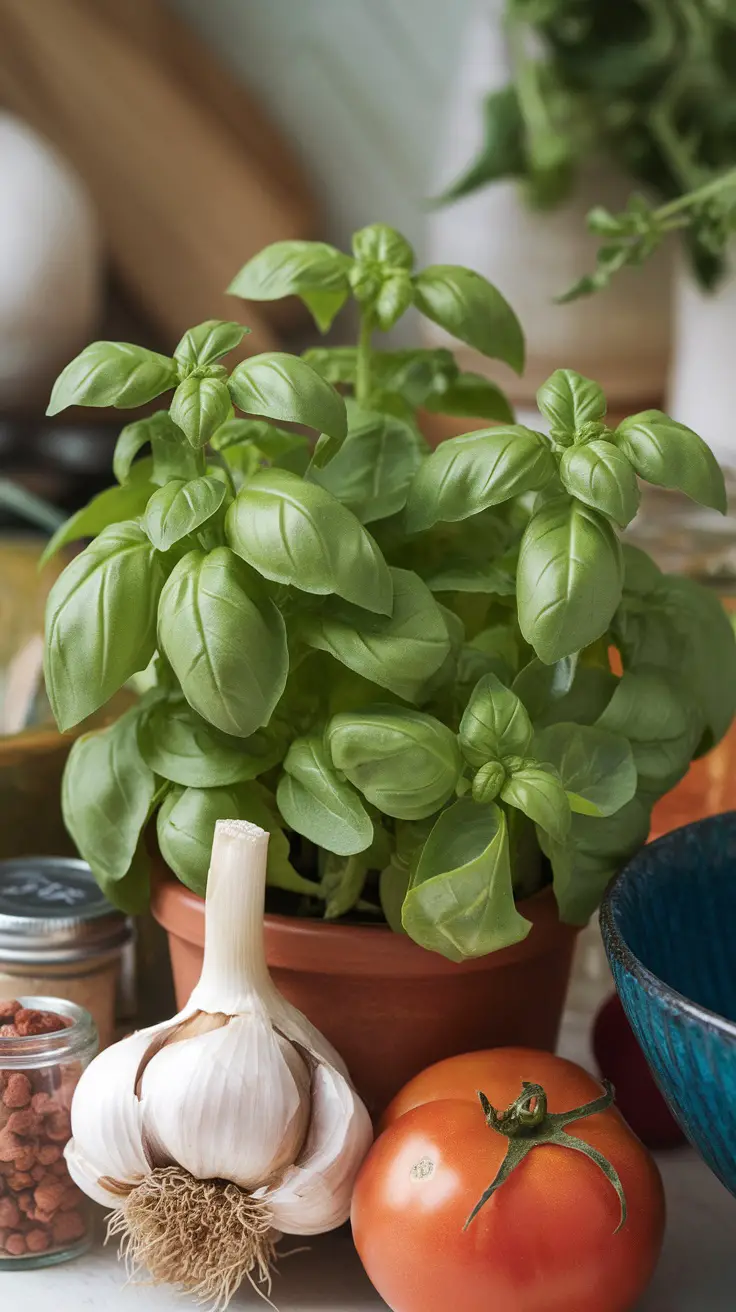
Basil, beyond its culinary appeal, acts as a fantastic natural insect deterrent. This bright green herb, a kitchen favorite, complements tomatoes and garlic perfectly, common ingredients in countless dishes.
This image features a lush basil plant alongside garlic and vibrant tomatoes. This pairing demonstrates basil’s culinary value and its ability to repel mosquitoes. Its potent scent naturally deters these insects, making it an ideal plant for your garden or balcony in 2025.
Want to experience basil’s advantages? Growing it in a pot is simple. Ensure it gets plenty of sunlight and consistent watering. Fresh basil leaves enhance salads, pasta dishes, and homemade pesto. Blend basil with garlic, olive oil, and nuts for a quick, delicious dip!
Therefore, as you prepare dinner, remember basil’s dual benefit. It enhances your food’s taste and naturally repels mosquitoes. It’s a perfect solution for every home chef!
Sage’s Aromatic Influence
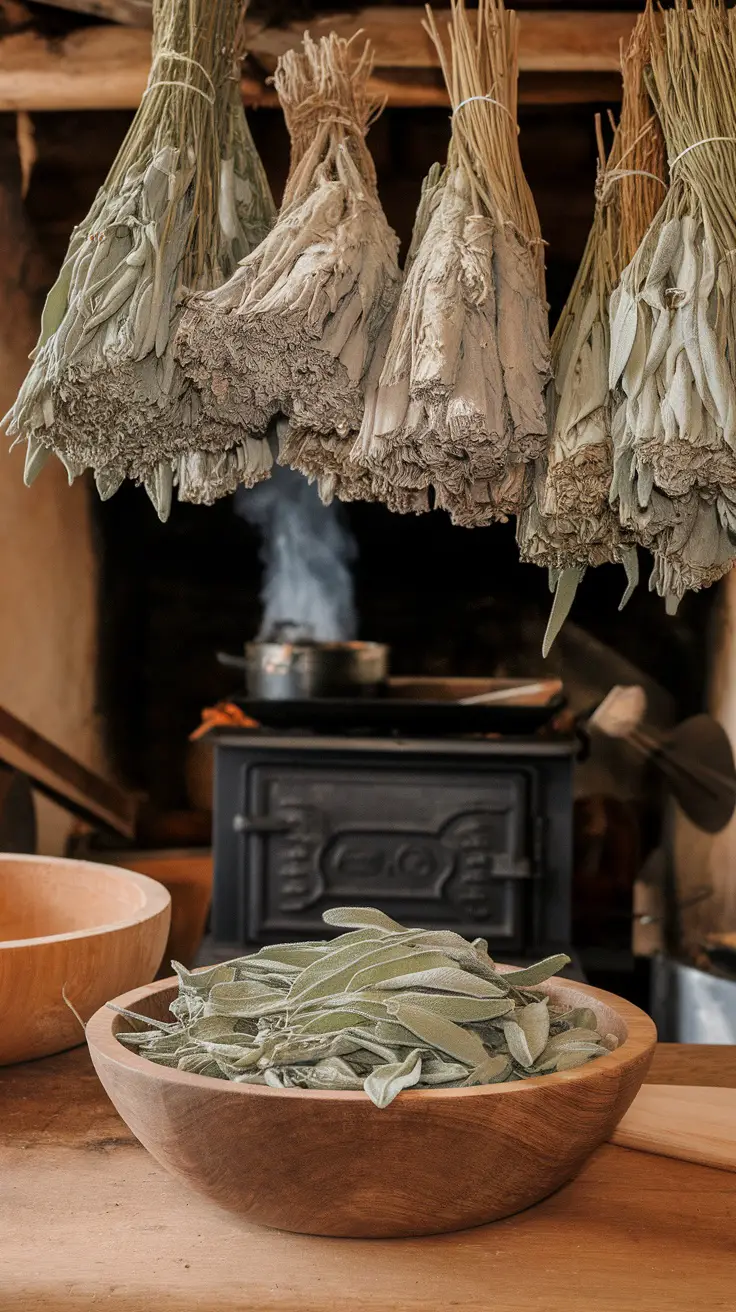
Beyond its culinary uses, sage naturally deters mosquitoes. The photo showcases dried sage bundles suspended in a charming, rustic space. Its earthy colors and textures evoke a cozy, natural ambiance, highlighting the herb’s inherent appeal. This makes it a practical and aesthetically pleasing mosquito repellent for 2025.
The colorful leaves are perfectly arranged in the wooden bowl, prepared for their purpose. Burning dried sage releases a pleasant aroma that naturally repels mosquitoes. Enjoy a more comfortable outdoor environment with this easy and effective method.
Adding sage to your garden improves its beauty and acts as a natural insect repellent. It’s also simple to grow and maintain. Whether you plant fresh sage or use dried sage, it brings nature indoors and helps control pests. Consider sage for a beautiful and functional garden addition in 2025.
Tansy and Its Historical Uses
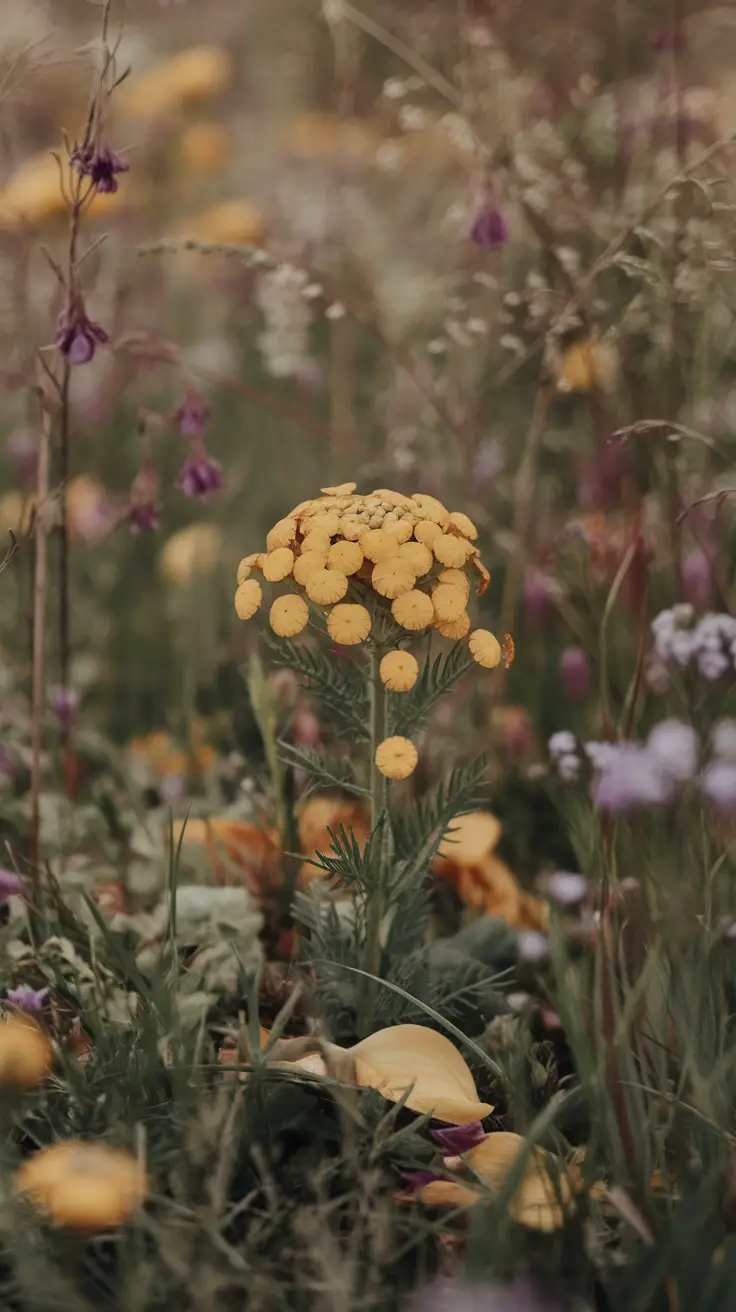
Tansy is a visually appealing plant. Its bright yellow flowers, as seen in the picture, create a striking display. These flower clusters rise above the green foliage, making them easily noticeable. Throughout history, tansy has been valued for its diverse applications.
Historically, tansy served as a natural insect repellent, especially against mosquitoes. Its potent fragrance, unpleasant to many, effectively deters these pests. Beyond pest control, tansy also found applications in both culinary practices and traditional medicine.
Tansy leaves offer a distinctive, slightly bitter taste. Historically, they were a common pie flavoring. Moreover, traditional medicine employed tansy for diverse health issues. Tansy is more than just an attractive plant; it boasts a long history of practical applications.
Lemon Balm’s Inviting Fragrance

Lemon balm is more than just a visually appealing plant. Its captivating aroma makes it a joy to cultivate. The crisp, citrus-like scent can elevate your spirits and naturally repel bothersome mosquitoes.
This image features lush lemon balm foliage, ideal for enhancing your living space or garden. The leaves appear incredibly fresh and vibrant, suggesting their delightful fragrance. A nearby jar probably holds an infusion, preserving the essence of this charming herb.
Lemon balm is easy to use. Simply crush the leaves to extract their oils and apply them to your skin. Alternatively, brew the leaves into a delicious and refreshing tea. Beyond its great taste, lemon balm is a proven mosquito repellent.
Thyme’s Versatile Charm
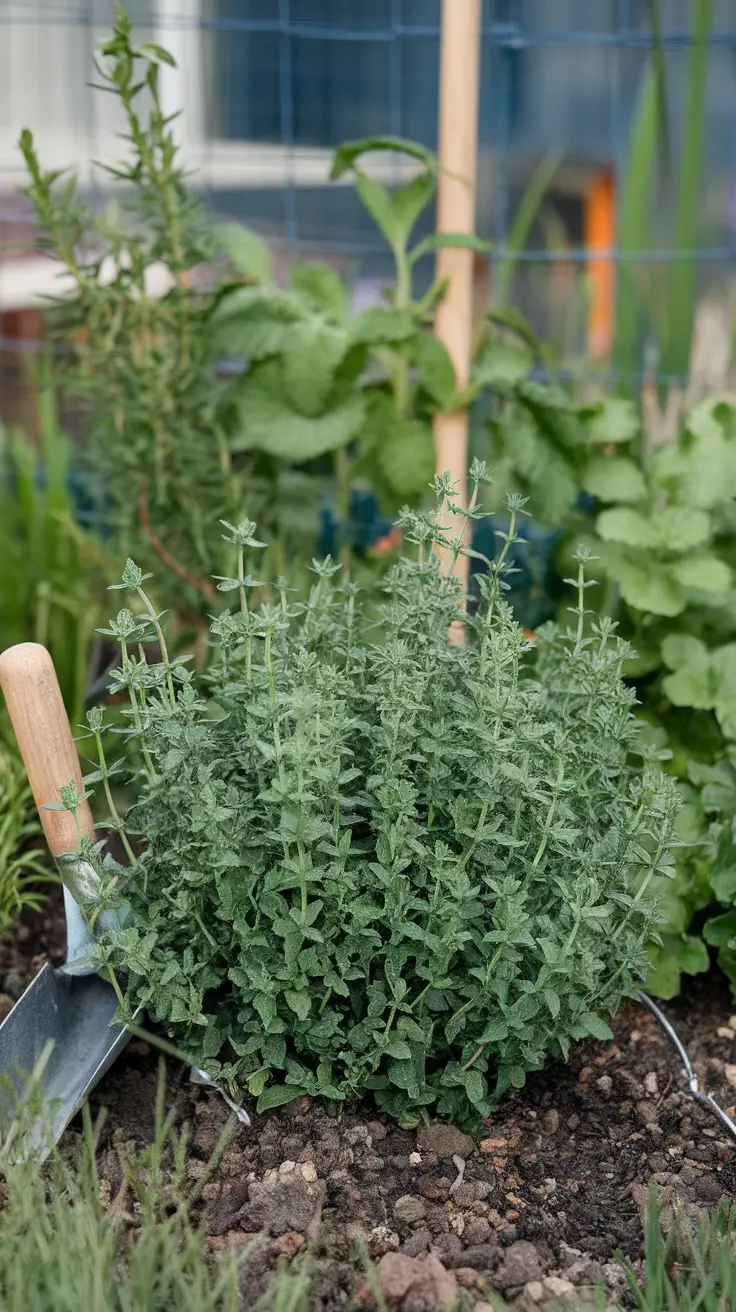
In 2025, thyme remains a top choice for mosquito control. This fragrant herb offers more than just culinary appeal. Its potent scent naturally deters mosquitoes, making it an effective and eco-friendly repellent.
This image showcases a flourishing thyme plant, thriving alongside other herbs in a garden setting. Its lush green foliage and upright form indicate a healthy and vibrant addition to any outdoor area. Thyme’s delicate leaves and vivid color make it both visually attractive and incredibly useful.
Cultivating thyme in your garden is simple. It flourishes in well-draining soil and prefers sunny locations. You can also grow it in containers if you have limited space. Remember to water it consistently, and you’ll have a natural mosquito repellent readily available!
The best part? You can cook with thyme! It enhances stews and roasted meats with a wonderful, complex flavor. This makes it a truly versatile herb for both your kitchen and garden in 2025.
Fennel’s Unique Aroma
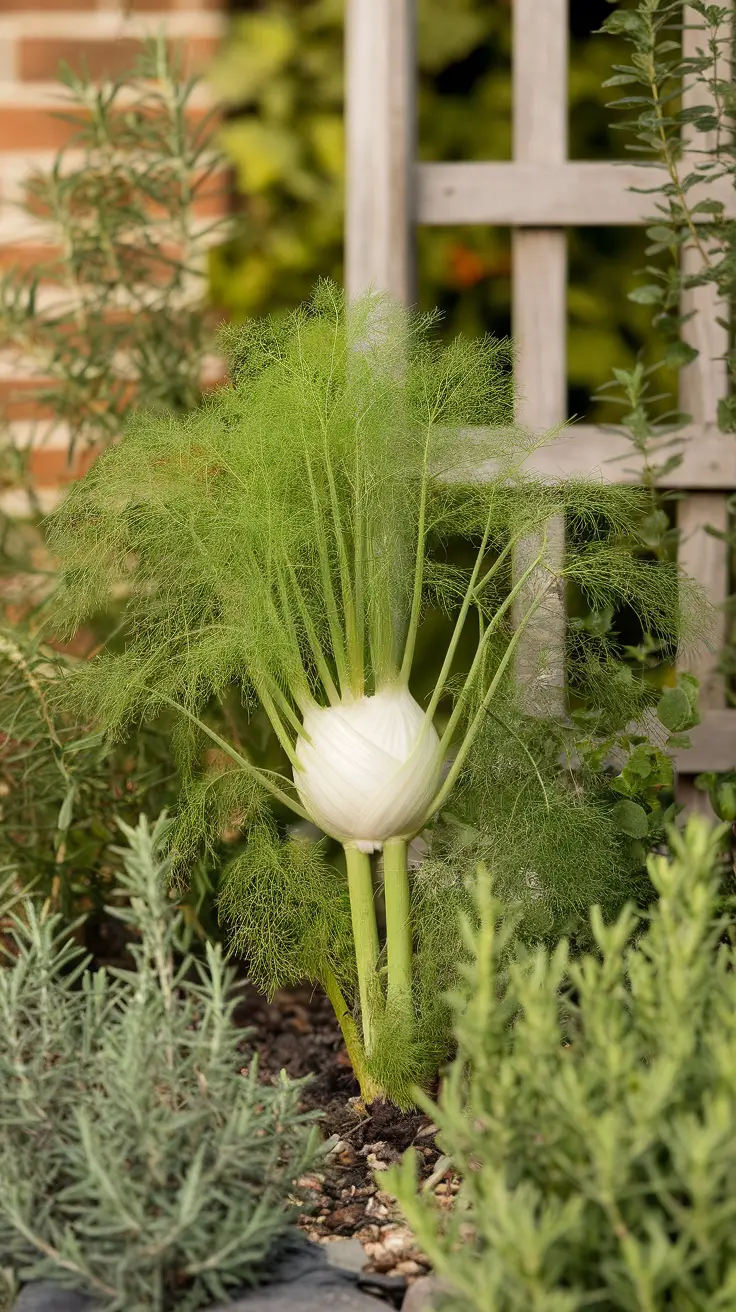
In 2025, fennel remains a fantastic kitchen ingredient and a natural mosquito repellent. Its distinctive aroma helps deter those pesky insects. With its feathery green foliage and bulbous base, fennel enhances any garden’s aesthetic appeal.
Fennel boasts a sweet, subtly licorice-like aroma that’s generally appealing. Interestingly, mosquitoes find this scent repulsive, making fennel a natural deterrent. Consider planting fennel in your garden or placing a potted plant on your patio. This creates a natural shield against these annoying insects.
This image showcases a thriving fennel plant, a verdant standout in a herb garden. Its lush, green leaves are both visually appealing and practical. Adding fennel to your garden offers culinary benefits and naturally repels mosquitoes.
Nasturtiums and Their Edible Flowers
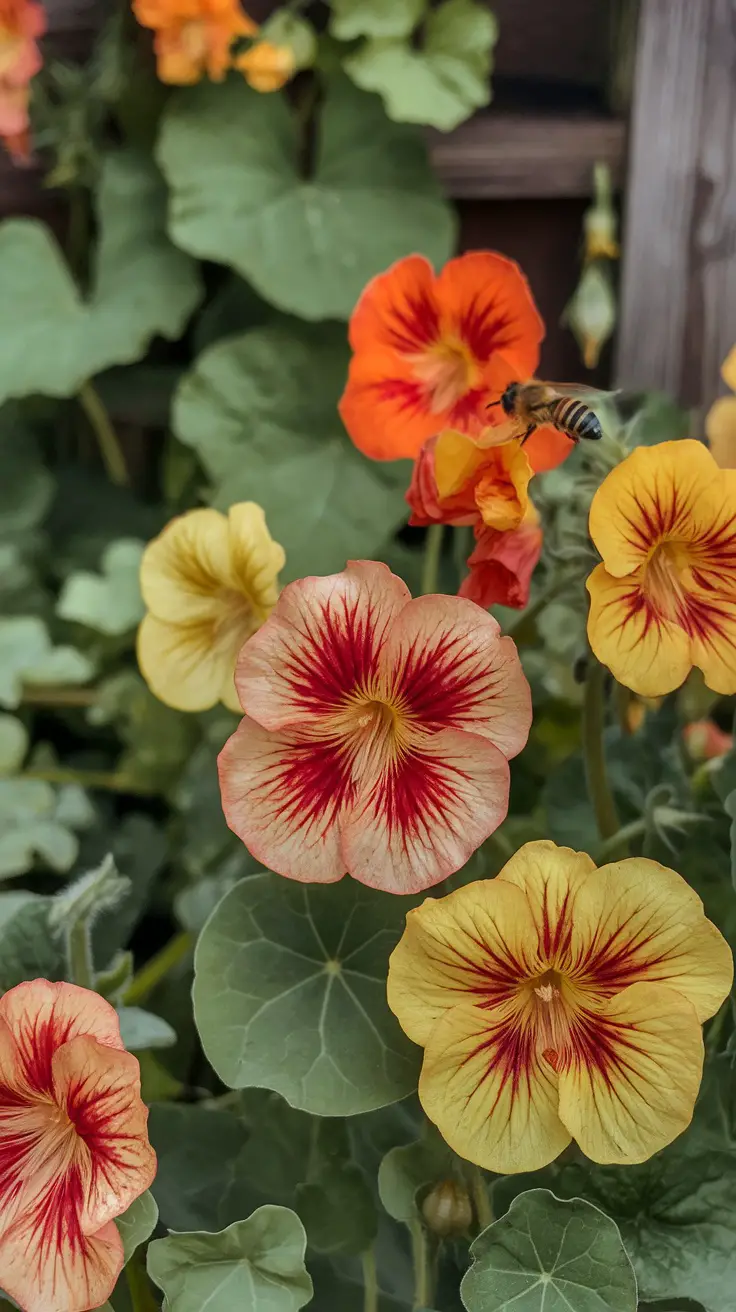
Nasturtiums offer a burst of color to any garden setting. These brilliant flowers, showcasing shades of red, orange, and yellow, instantly enhance your outdoor area. Beyond their aesthetic appeal, nasturtiums naturally repel mosquitoes. Their distinctive fragrance acts as a deterrent, creating a more pleasant and mosquito-free garden environment.
Beyond their pest control benefits, nasturtiums are fully edible. Their leaves and flowers enhance salads with a peppery zest, transforming ordinary dishes. The vibrant blossoms serve as eye-catching garnishes, injecting color and a distinctive flavor into your meals. Consider them a 2025 culinary trend!
Want to add nasturtiums to your meals? Simply pick the flowers and leaves, then wash them well. Try them in a crisp salad, mix them into a vibrant pesto, or use them as a garnish on a cheese board. They’re simple to cultivate in your garden or in containers on your balcony. This makes them a great option for anyone wanting to improve their outdoor space and naturally deter mosquitoes.
Garlic’s Powerful Effect
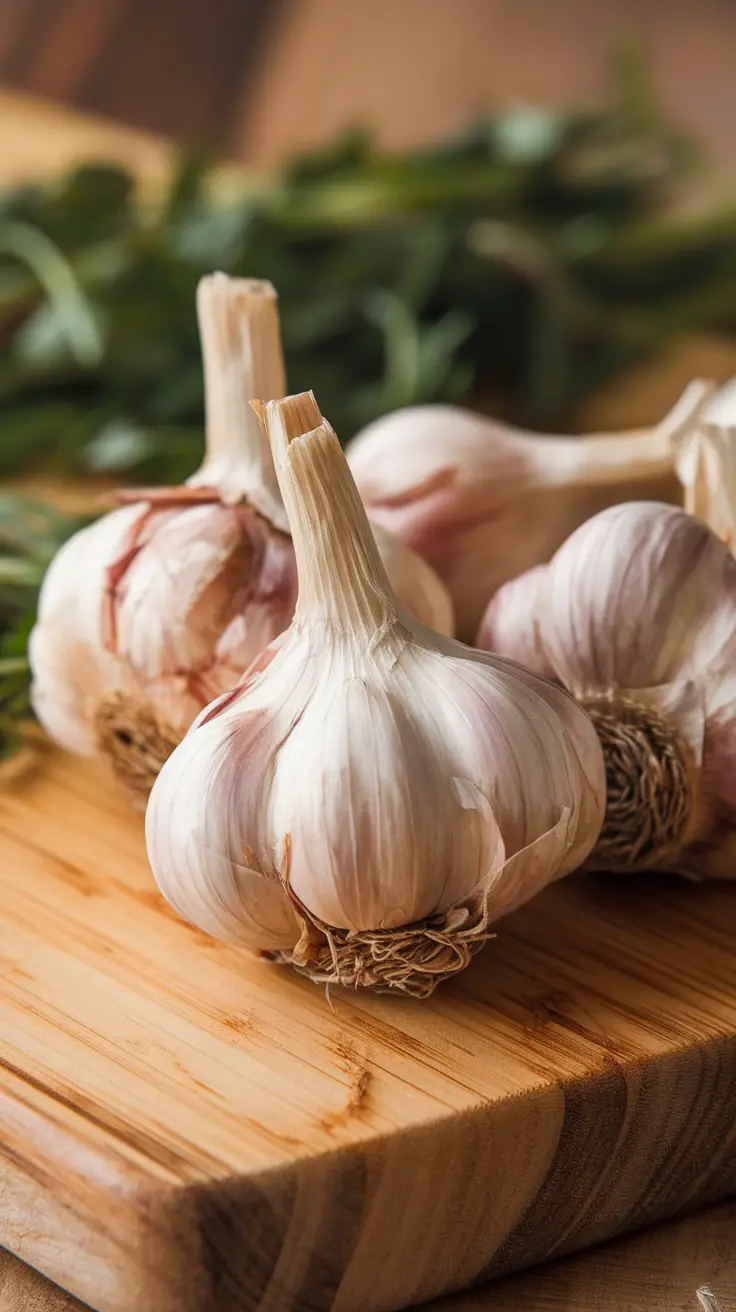
Garlic offers more than just culinary zest. This common bulb boasts a surprising ability: mosquito repellent! The picture showcases fresh garlic, its delicate skin shimmering, poised to help you savor your outdoor moments free from annoying bites.
Crushing or chopping garlic unleashes allicin. This compound provides garlic’s potent aroma and its mosquito-repelling abilities. Plant garlic in your garden or place whole bulbs near your patio to deter mosquitoes effectively. Enjoy a bug-free outdoor space!
You can also easily create a garlic spray. Simply blend garlic cloves with water, strain the mixture, and spray it where mosquitoes are common. While some enjoy the scent, it effectively repels these pests. For a natural and enjoyable summer, garlic is a great solution!